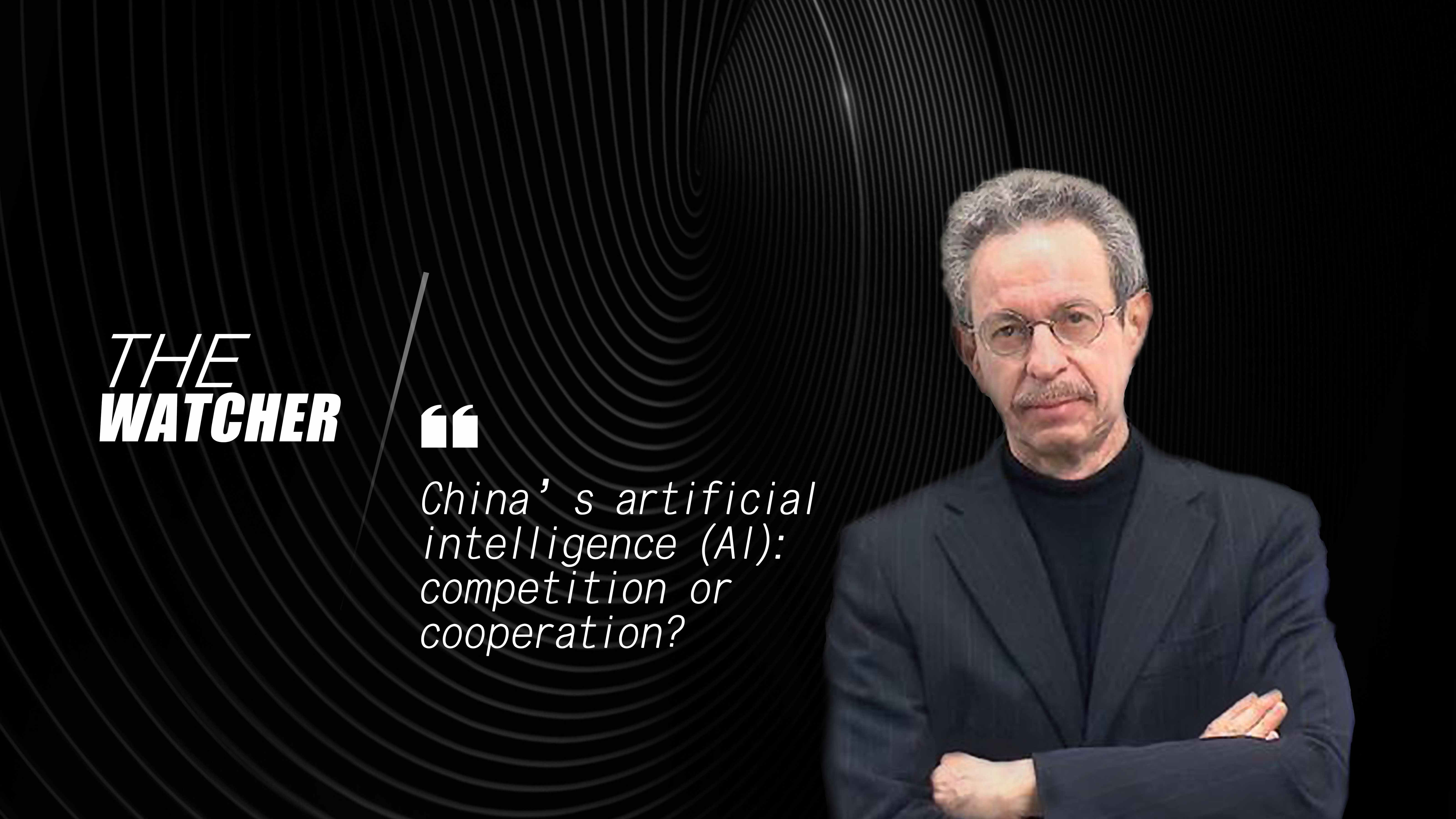
Opinions
16:49, 17-Sep-2018
The Watcher: China’s artificial intelligence (AI): competition or cooperation?
Updated
16:13, 20-Sep-2018
Robert Lawrence Kuhn
03:46

I'm Robert Lawrence Kuhn and here's what I'm watching: Artificial Intelligence, AI, developing rapidly in China.
AI is heralded as transformational for humankind; some say AI will disrupt industries and societies, even alter powers among nations. Conceived in literature and philosophy, AI was founded as a field in the late 1950s in the US.
One of AI's founders, the late Marvin Minsky of MIT, a friend, told me how the founders saw the right vision, though they were overly optimistic in their forecasts. Ray Kurzweil, whom I also know, famously celebrates “The Singularity”, when non-biological intelligences vastly exceed human intelligence.
Conversely, some scientists fear that AI could literally take over the world, with uncertain, even dire, consequences for humanity. While the United States continues to dominate AI, China's ambition is to become a leader in Al.
In 2017, China's State Council issued its guideline, the “Next Generation Artificial Intelligence Development Plan”, envisioning China as a global innovation center by 2030.
Why has China made AI a national priority? Which AI areas and industries are targeted? What are China's competitive advantages, disadvantages?
Some say AI has become a kind of battleground between China and the US. Six factors drive China's AI strategy: A robust data ecosystem, adoption in traditional industries, creation of new industries, specialized talent, education and training systems, and ethical and legal consensus.
In developing AI, China has advantages of recruiting national resources, huge user base, mega-project velocity, and the world's second largest economy. The US has advantages of first mover, top universities, diversity of researchers, venture capital ecosystem, openness and transparency.
All seek breakthroughs in big data intelligence, deep machine learning, brain-like computing, multimedia computing, human-machine hybrid intelligence, swarm intelligence, expert systems, even quantum intelligent computing.
AI has hit its tipping point; it cannot be stopped. AI will be a major driver of industrial upgrading, consumer marketing, healthcare, education, smart cities, public security, agriculture, and of course national defense. At the same time, AI raises complex ethical, legal, social and security questions, from threatening human jobs and privacy to empowering autonomous war machines.
So, why should AI be a win-lose competition? Perhaps, it's not so much China versus the US, but humans versus machines? Shouldn't China and the US be partners, not adversaries, to assure that AI serves humanity, not the reverse? I'm Keeping Watch. I'm Robert Lawrence Kuhn.
(If you want to contribute and have specific expertise, please contact us at opinions@cgtn.com.)

SITEMAP
Copyright © 2018 CGTN. Beijing ICP prepared NO.16065310-3
Copyright © 2018 CGTN. Beijing ICP prepared NO.16065310-3